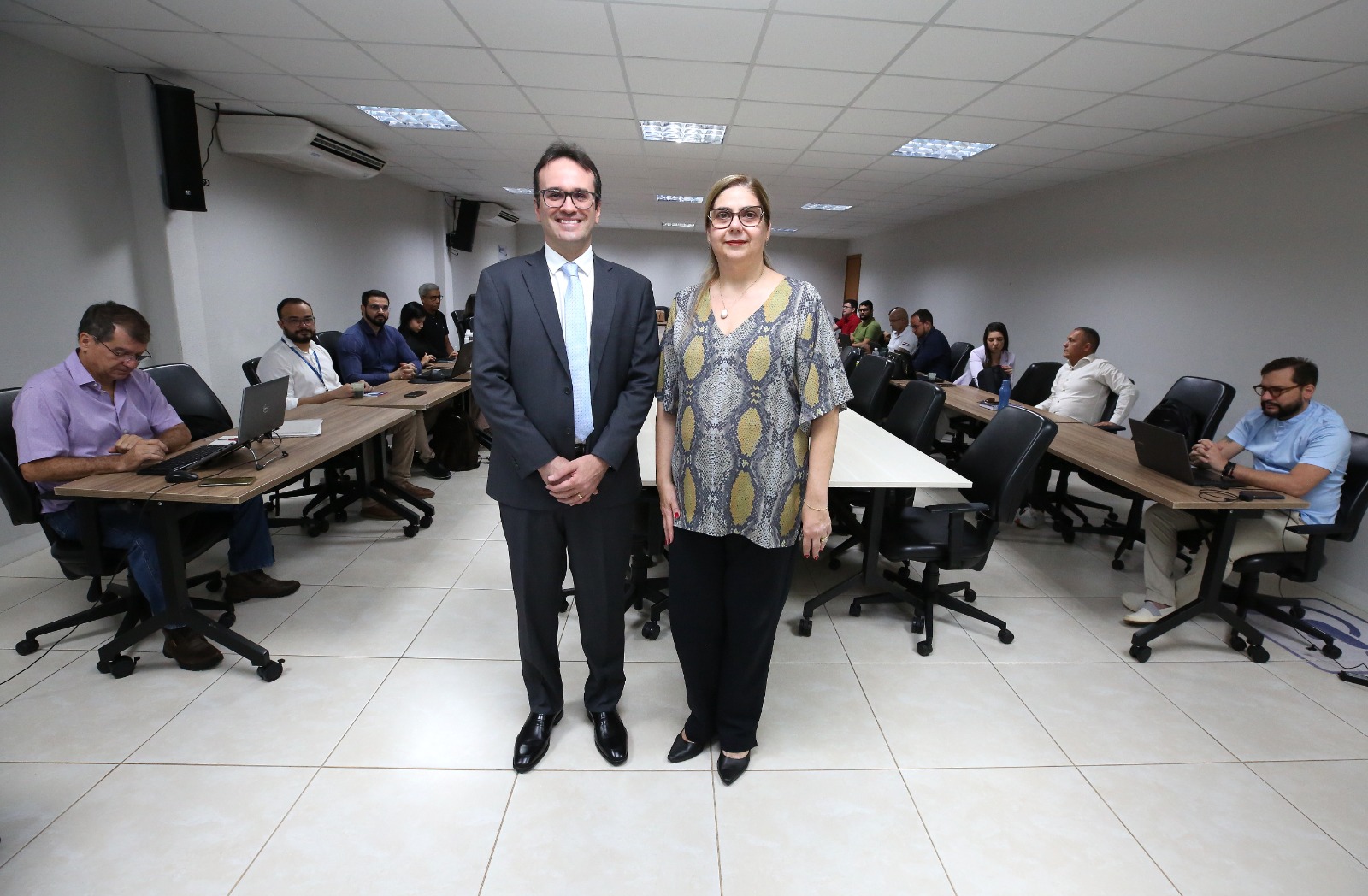
Focusing on the updating and qualification of operators of the Law on the recent changes in the Administrative Improbity Law, the Superior School of the Judges of the State of Tocantins (Esmat) held, on October 16th and 17th, the course on Anti-Corruption Law: Material, Investigative and Procedural Aspects.
The training, coordinated by Judge Flávia Afini Bovo, had the participation of magistrates and civil servers of the Judiciary of the state of Tocantins and it was conducted by Prosecutor Igor Pereira Pinheiro.
In her testimony, the judge stressed the relevance of the topic for contemporary legal training, highlighting that the proposal contributes to the understanding of the legal mechanisms for preventing and combating corruption, as well as the responsibilities assigned to natural and legal persons.
“The interdisciplinary approach favors the understanding of the investigative process and the applicable sanctions. In addition, it encourages ethical reflection and commitment to public and private integrity. This is an essential theme for strengthening justice and institutional transparency", she said.
During the two days of activities, the participants were able to deepen their knowledge on topics such as constitutional principles applicable to the fight against corruption, anti-corruption investigations, acts of administrative improbity, crimes against public administration and crimes of responsibility.
For the student Denise Oliveira, the course offered an intense training experience and applicable to the legal routine. According to her, the clear and objective guidance of the professor, combined with the use of practical examples, favored the understanding of the main challenges faced by the Judiciary in the subject. Denise highlighted as a high point the integration among international anti-corruption conventions, conventionality control and the Law no 14.230/2021, with emphasis on subjective responsibility, precautionary measures and dosimetry.
“I go with concrete tools for more informed decisions, fast and aligned to public integrity", assessed.
The programming was divided into two modules: the first focusing on the general theory of the anti-corruption law and the second focused on investigative practices and judicial action.





_thumbnail_thumbnail.jpeg)
_thumbnail_thumbnail.jpeg)
_thumbnail_thumbnail.jpeg)

_thumbnail.jpeg)
_thumbnail.jpeg)
_thumbnail.jpeg)
